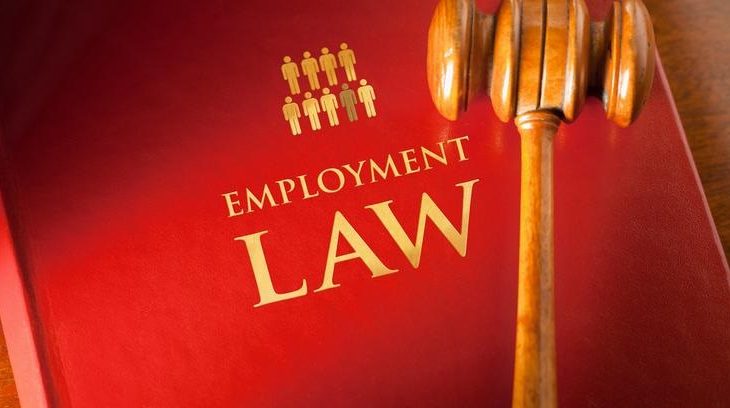There are employment laws regarding everything from record keeping to minimum wage to how to display employment law posters in the workplace. The U.S. Department of Labor oversees employment law on the federal level, and all states and U.S. possessions must comply with those laws and regulations. DOL.gov outlines all the details of employment law and compliance, as well as what employees can do when those laws are broken.
Department of Labor’s First Step
Different laws apply to different types of businesses, and they are based on business type, size, number of employees and nature of the work. The laws regulate how compliance records must be kept, and they also describe the minimum guidelines an employer must use to legally maintain his business. The laws also outline what notices the employer is required to provide to an employee. DOL’s First Step is an online employment law adviser that provides information on a number of these laws. The First Step online facility covers topics such as black lung benefits, consumer credit protection, garnishment, contract work hours, polygraph protection, fair labor standards, child labor, family and medical leave, and immigration and nationality; as well as many others subjects that concern employers.
Workplace Rights
Workplace rights issues are covered under topics such as compensation, equal employment, health plans, retirement plans, termination, wages and unemployment insurance. The main thing to remember is that the DOL maintains and administers more than 180 federal laws covering 10 million employers and 125 million workers in the United States. Different laws apply to different fields, so the best thing to do is to individually research each field and what the laws do and don’t cover for that particular industry.
Minimum Wage and Overtime
Minimum wage law is the hourly pay that is required by law to be the very least amount an employer is required to pay. Amounts above that are negotiated between an employer and employee at the time and date of hire. Many states also have overtime laws, and the employee is typically entitled to the higher of the two rates, if they differ. Exceptions to minimum wage laws usually apply to tipped workers such as waitresses and youth workers under the age of 20 years to which other labor laws also apply. Overtime pay is generally required by law after an employee has worked 40 hours in a work week. This amount is one and a half times the amount of pay typically paid at the regular rate. A job paying $10 per hour would pay overtime at the rate of $15 per hour. Double-time for weekends and holidays that are not involved with a 5-day work week of Monday through Friday are not covered under the Fair Labor Act; it is strictly a matter of agreement between employer and employee.
Independent Contractors
Though there are laws that apply to workers who work under the cover of federal contracts, there are not many federal laws in existence for independent contract workers who are not full-time regular employees of a company, unless they work through what is known as a temporary or job placement agency. Generally speaking, under certain circumstances, IC workers are treated as employees if their work is based on an hourly standard rather than a per-job basis that requires a contractor to get a job done and then bill for it.
Disability and Other Claims of Leave of Absence
The Occupational Safety and Health Act of 1970, or OSHA, covers employees who work mostly under hazardous conditions, such as handling chemicals and working in environmentally unsafe circumstances. Workers compensation covers employees who are injured on the job or in the line of duty with the performance of a job, and there are other laws and acts in place to cover employees who are disabled or must take a leave of absence not due to any company-related hazard or job-related reason. The Family and Medical Leave Act, or FMLA, covers pregnant women, spouses and children and was developed as a direct legal response to women and children who were unprotected by law when women could be fired or ‘indefinitely laid off’ for starting or building their families or for having to leave a job to care for an elderly or sick relative or child.





